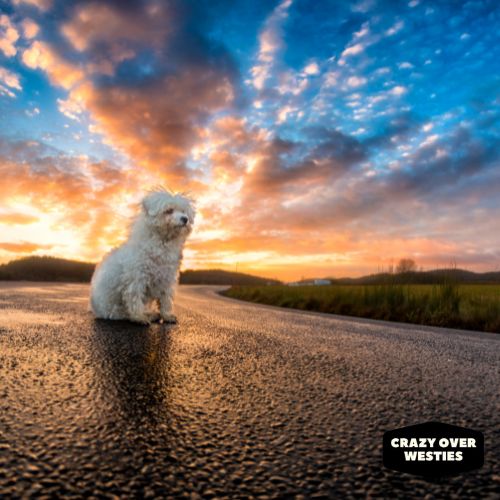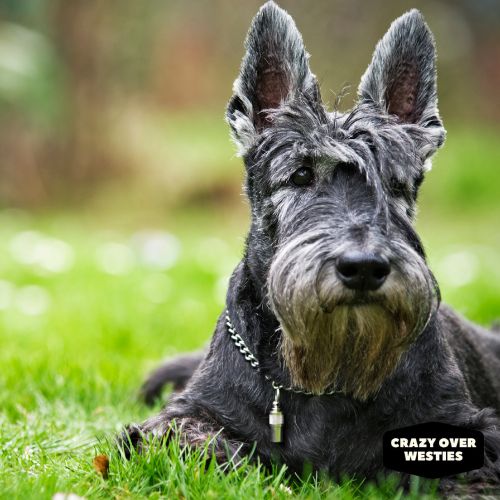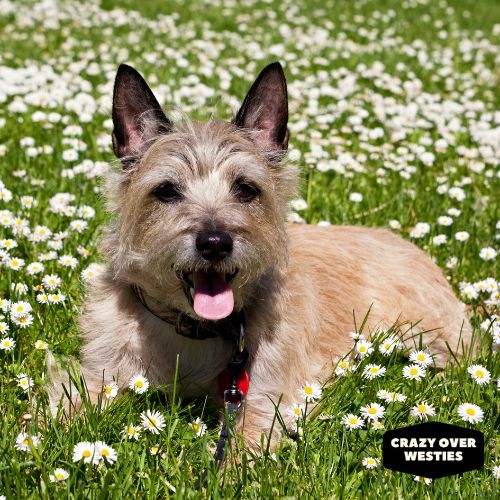West Highland Terriers are great for people who suffer from allergies. They are hypoallergenic, which means that they are less likely to trigger allergies.
Westies require little grooming, so they won’t aggravate the symptoms of someone who has asthma or allergies. They produce relatively less dander and shed less than other breeds of dogs.
This content takes around 4 minutes to read, but if you are in a hurry, we have included a table of contents to let you see, at a glance, what the content contains.
Westies also make great companions for those with asthma or other respiratory conditions because they can be taught to go outside and come back in when the person feels better, which helps them avoid triggers like pollen and dust.
—————————-
Table of Contents
What Exactly Is A Hypoallergenic Dog:
Allergies can be a common symptom of pet ownership but hypoallergenic dogs can make your life much more comfortable. These breeds don’t shed and are low allergy which means less dander (hairs from their skin). This means that fewer allergens cling to the dog.
It’s important to remember that no dog is actually hypoallergenic. Rather, they are just less likely to set off an allergic response. That’s because the main physical feature of this type of dog is not shedding or shedding very little.
———————–
Are Westies Low On Dander:
Animal allergies are most commonly caused by dander and shedding. Dander is the dead skin cells that fall off the animal and mix with their saliva. Shedding is just hair or fur that falls out of the animal’s coat.
The Westie’s coat is a hypoallergenic double coat of either coarse hair or soft hair and is low in dander. The outer and undercoat are not only attractive features, but they also ensure that this breed doesn’t make any allergies aroused by style or by shedding too much.
———————–
Do Westies Shed Much:
It’s true that no breed of dog is completely devoid of hair and to that end, Westies certainly don’t come close. However, when they do shed their fur it’s typically not as thick or voluminous as the shedding of other breeds and their dander released into the air is less than what other breeds would produce.
As the seasons change, Westies won’t need coats as they don’t blow like other breeds. However, they might not be as good at shedding, so it’s best to brush and clean their coat from time to time to maintain a healthy coat. This way you can also reduce the amount of hair or fur which you might find at home
———————-
The Westie History:
The West Highland White Terrier is a Scottish breed of dog that was originally bred to hunt and kill rats and other vermin. They were also used to hunt otters from the water because of their excellent swimming abilities.
Westies are intelligent, friendly, and playful dogs that are loyal to their family and are good with children.
The Westie has been around since the 1800s and they were first bred in Scotland. They became popular in America after World War I when they were first brought to the US by returning servicemen who had served on Scottish farms during the war.
————————
What Other Dogs Are Hypoallergenic and Good For Allergy Sufferers :
Bichon Frisé:

The Bichon Frisé is believed to have come from the Water Spaniel and was popular during the medieval times in countries situated around Mediterranean Sea.
This breed is one of the dog breeds that produces less dander. This breed has a coat that is long and fluffy and sheds very little, making these breeds perfect for many people. They are cheerful, small dog breeds with lots of love to give.
Yorkshire Terrier:

Yorkshire Terriers are one of the smaller dog breeds and come from Yorkshire. One reason so many people love them is that they are cheerful and clever but never drool or shed. If you suffer from allergies, this would be a great dog for you!
Yorkies are one of the more popular dog breeds in the US because of their intelligence and loyalty. They are also easy to live with if you live in an apartment-
Miniature Schnauzer:

The Miniature Schnauzer is the most popular breed on the market, providing years of companionship and loyalty.
They may be tiny, but they still share the same serious expression as their larger counterparts. They don’t shed much and love to play, so you’ll find plenty of fetch and dog toys around the house.
Maltese:

Ancient Greek breeds are not just small, they’re very gentle. At around seven pounds, they can easily fit in people’s laps without too much trouble. Unlike other small dogs which can cause allergies, their white coat means they don’t produce any allergens.
You can decide on a style haircut depending on how much time you want to dedicate to maintenance.
Scottish Terrier:

They were first bred as fierce hunters, and their wiry coats keep them in good condition in all climates. Today, you can find their dignified beard gracing your couch.
Real-life Scotties are independent and stubborn, yes. But they can also be affectionate companions.
Cairn Terrier:

Dogs that have wiry coats tend to shed less than other dog breeds. For owners with allergies, the coarse-haired terriers are a good choice.
Cairn terriers have such a brave and loyal personality that more & more owners nowadays prefer them over other breeds.
——————–
FAQS:
———————
Conclusion:
There are many things to consider when adopting a dog. You should think about the kind of care it needs, the size and personality, how long a dog can be expected to live, and more.
West Highland Terriers are a great pet choice for those with allergies. They produce less of the allergens that could trigger an allergic reaction, making them hypoallergenic.
————————
Disclaimer: All material on this website is provided for your information only. It may not be construed as medical advice. No action or inaction should be taken based solely on the contents of this information. Instead, readers should consult appropriate health professionals or veterinarians on any matter relating to their pet’s health and well-being. The publisher is not responsible for errors or omissions.

